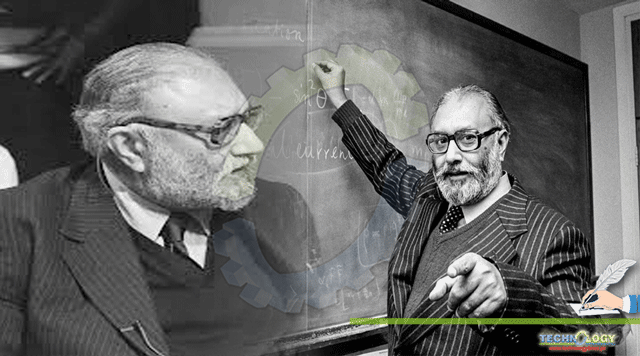Dr Abdus Salam was a Pakistani theoretical physicist. He shared the 1979 Nobel Prize in Physics with Sheldon Glashow and Steven Weinberg for his contribution to the electroweak unification theory. Hailed as one of the world’s top theoretical physicists of the 20th century, Dr Abdus Salam remains relatively unknown in Pakistan and his contributions even more so.

By Tahir Yousuf
Early life
Mohammad Abdus Salam was born on January 29, 1926, in Santokdas Punjab. His father was Chaudhry Muhammad Hussain, an education official, and his mother was Hajira Nabi Baksh. Abdus was the eldest of their eight children.
Abdus Salam attended school in the town of Jhang. From an early age, he showed enormous ability in mathematics and science. He also developed a lifelong love of poetry in English, Persian, and Punjabi.
At age 14, he astounded the people of Jhang when he acquired the highest marks ever seen in Punjab University’s entrance examination. Almost the whole people in the town turned out to celebrate his success. Not startlingly, he was given a university scholarship. He graduated with a Master’s degree in Mathematics in 1946, age 20.
Cambridge and Important Prizes
Abdus Salam was awarded a three-year scholarship to study for a Bachelor’s degree at a UK college. After two- years he graduated with first-class honors in Mathematics. One year later, he graduated with first-class honors in Physics.
Salam stayed at Cambridge for graduate studies. In 1950, a year after starting his Ph.D., he was awarded the university’s Smith’s Prize for the most exceptional pre-doctoral contribution to physics at the university.
He completed his Ph.D. thesis in 1951: Developments in a quantum theory of fields. This was a rather brightwork: in addition to making his name as a physicist, it resulted in him winning a share of the highly prestigious Adams Prize for mathematical sciences in 1956.
Pakistan and the UK
In 1951, at age 25, Salam returned to Lahore Pakistan to teach Mathematics at Government College. He was filled with hope that he could inspire a new generation of young people to become scientists and modernize society. The following year, he was appointed Head of Mathematics at Punjab University.
Lahore suffered riots in which a very large number of Ahmadis were killed in 1953. Ahmadis consider themselves to be Muslim but are seen as heretics by many other Muslims. Salam, who was an Ahmadi, decided to leave Pakistan and return to Cambridge.
Role in the establishment of PAEC
During the early 1960s, Salam played significant roles in establishing the Pakistan Atomic Energy Commission (PAEC) and Pakistan’s Space and Upper Atmosphere Research Commission (SUPARCO).
Salam was ardent about promoting science in developing countries. He recalled there had once been a golden age of Islamic science when for hundreds of years Islamic scientists had led the world.
He urged Muslims to regain the spirit of free inquiry that existed in those times. Salam was the founder of the Third World Academy of Sciences (TWAS) and the International Centre for Theoretical Physics (ICTP). He donated all the money he received from his Nobel Prize to setting up a fund in Pakistan to promote educational opportunities.
Death-On 21 November 1996
Abdus Salam died on 21 November 1996 at the age of 70 in Oxford, England, from progressive supranuclear palsy. His body was brought to Pakistan and kept in Darul Ziafat, where some 13,000 men and women visited to pay their last respects.
Salam was buried in Bahishti Maqbara, a cemetery established by the Ahmadiyya Community at Rabwah, Punjab, next to his parents’ graves.
In 2016, former Prime Minister Nawaz Sharif approved the renaming of the National Centre for Physics at Quaid-e-Azam University after Dr.Abdus Salam. However, even this small recognition received much backlash. Even in death, Dr. Abdus Salam faced the same struggle as he did when alive.
Religious beliefs must not be used against anyone
Salam was the first Pakistani to prevail a Nobel, and his victory should have been a historic moment for the country. But instead, 41-years on, his story has largely been forgotten by the country in which he was born – in part because of the religious identity.
Despite his persecution, Salam’s dedication to his country and the people of Pakistan did not waver. He was offered British and Italian citizenship but remained a Pakistani citizen until he died.
Surprisingly, there is no national day, road or city in Pakistan named after Dr. Abdul Salam, while his services to the country are far greater and more important than those of other scientists.
Religious beliefs are personal and must not be used against anyone. While Dr Abdus Salam brought the name of Pakistan to the international stage, why Pakistanis do not consider him one of their countrymen despite 41-years had passed?
Courtesy: mmnews.tv